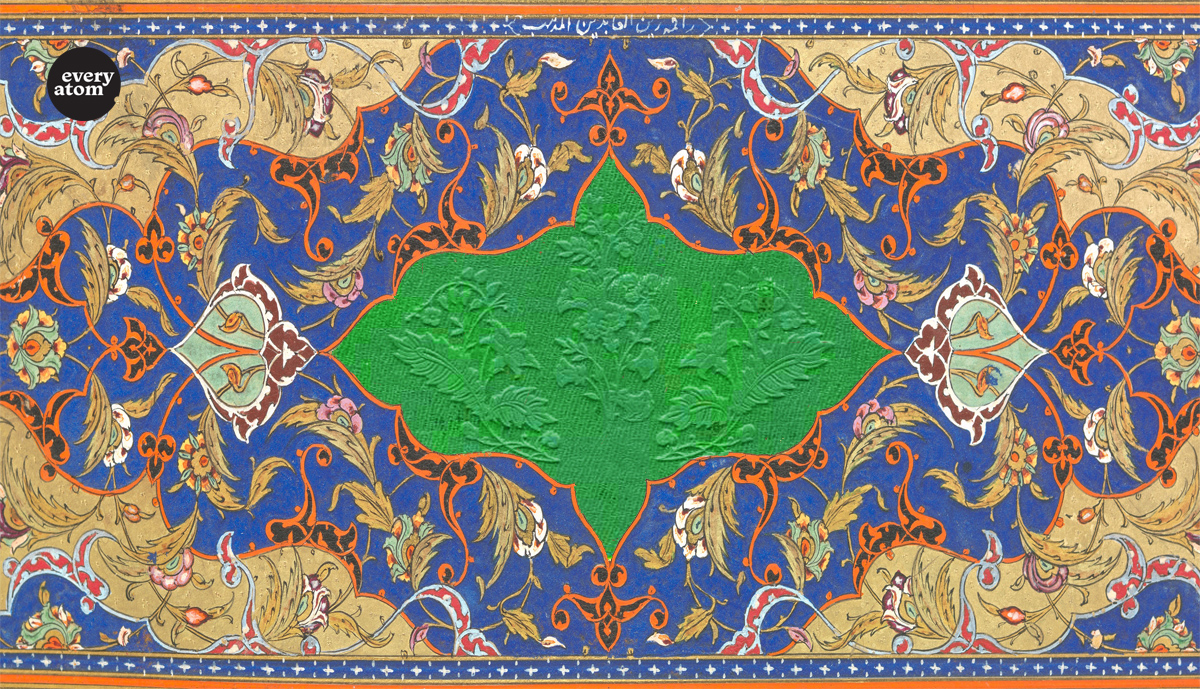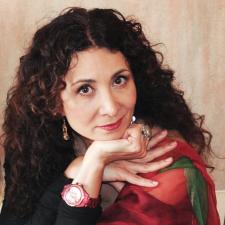Every Atom | No. 81
Introduction to Every Atom by project curator Brian Clements
In 2012, University of Iowa’s International program commissioned me to translate Walt Whitman’s “Song of Myself” into Persian. I went on to co-translate it with Iranian poet Mohsen Emadi. I think Whitman in Persian is even more sonorous than in English. Give it a listen if you wish: https://iwp.uiowa.edu/whitmanweb/fa/writings/song-of-myself/section-1
Translating “Song of Myself” deepened my understanding and love of Whitman. In 2015 I began translating 12th century Sufi poet Attar’s masterpiece The Conference of the Birds into English as obsessively as I had co-translated “Song of Myself” in Persian. My proximity to these two powerful texts changed my life, as a poet and a human being. I also saw firsthand how Whitman mirrored Attar.
Whitman was influenced by Ralph Waldo Emerson who was seduced by the Eastern mystics, particularly Hafiz; and Hafiz studied and learned from Attar. (See Roger Sedarat’s Emerson in Iran.)
To help you glimpse a bit of this mirroring, I’ve constructed an imaginary exchange between Whitman and Attar using direct quotes from “Song of Myself” (1892 version) and The Conference of the Birds (W.W. Norton, 2017). I suggest you read it out loud, to yourself or with a friend.
Attar:
Since no one has the capacity to see the Beloved’s face,
that Gracious One has given us a mirror to gaze
at the reflection of that resplendent Face.
That mirror is the heart. Look for the Beloved there.
Whitman:
I hear and behold God in every object.
Attar:
If you seek the Beauty of the Friend,
look into your heart where that mirror hangs.
Whitman:
In the faces of men and women I see God, and in my own face in the glass.
Attar:
A mirror is the Beloved’s sun-like face.
Look into it and see both body and soul,
yourself, soul and body, you.
Whitman:
I have said that the soul is not more than the body,
And I have said that the body is not more than the soul,
And nothing, not God, is greater to one than one’s self is.
Attar:
When the oil burns, it loses itself,
and so emerges from its own self.
Whitman:
This the touch of my lips to yours, this the murmur of yearning,
This the far-off depth and height reflecting my own face,
This the thoughtful merge of myself, and the outlet again.
Attar:
Both worlds, the upper and the lower, are but a drop of water, neither here nor there.
When that droplet first appears, it is replete with reflections. But even if all those
reflections were of iron, the hardest of metals, you could still shatter them back into water
drops. Whatever has its foundation in water, be it fire, is nothing but illusion. When water
itself is not stable, how can you use it as a firm foundation?
Whitman:
Who wishes to walk with me?
Attar:
We each travel our own path;
no two birds journey the same.
Recommended
Nor’easter
Post-Op Appointment With My Father
Cedar Valley Youth Poet Laureate | Fall 2024 Workshop







